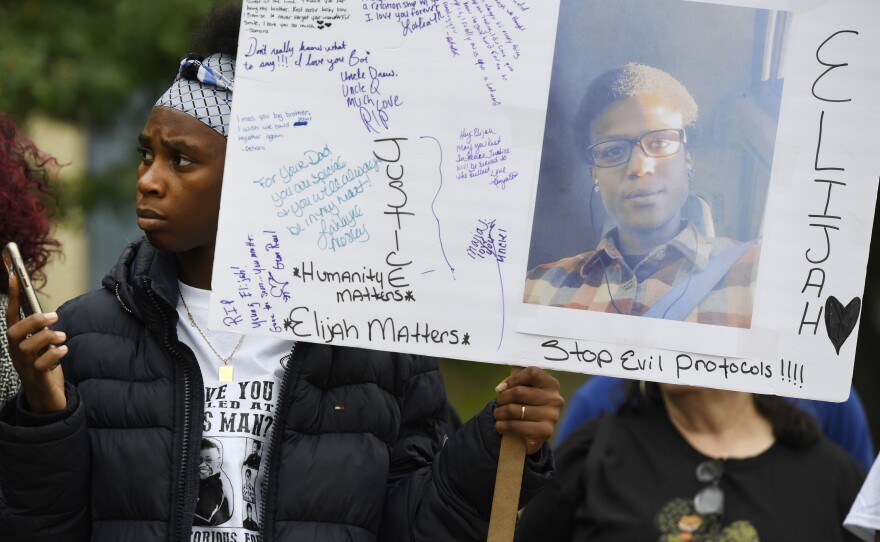The city of Aurora, Colo., has agreed to pay $15 million to the family of 23-year-old Elijah McClain, a Black man who died after being stopped by police, manhandled and drugged. His family had filed a civil rights lawsuit.
City leaders say they are prepared to sign the agreement as soon as the McClain family completes a separate process on dividing up the settlement.
"The city of Aurora and the family of Elijah McClain reached a settlement agreement in principle over the summer to resolve the lawsuit filed after his tragic death in August 2019," said Ryan Luby, deputy director of communications for the city in a statement sent to NPR.
Until the details are finalized, the parties cannot comment on the settlement and its terms, city officials say. A court hearing is scheduled for Friday.
NPR reached out to Mari Newman, the lawyer for Elijah McClain's father, for comment on the settlement but she declined.
However, legal representatives for Elijah McClain's mother, Sheneen McClain, told local TV station CBS4 Denver that she is thankful for the community and its "incredible support, love and commitment" to ensure Elijah McClain's death would lead to meaningful reform.
"While nothing will fill that void, Ms. McClain is hopeful that badly needed reforms to the Aurora Police Department will spare other parents the same heartache," the statement continues.
On Aug. 24, 2019, Elijah McClain was confronted by police while walking home with an iced tea he had just bought. A caller told a 911 operator they had seen someone "sketchy" in the area.
Later as police confronted McClain, who was not armed, they placed him in a chokehold, ignoring him as he cried in pain and vomited. McClain suffered cardiac arrest after paramedics injected him with ketamine, a powerful sedative, and he died six days later.
He was not suspected of any crime.
McClain's cause of death was listed as "undetermined" by the coroner.

His parents filed a federal civil rights lawsuit in August 2020 against Aurora, as well as numerous police officers, a paramedic and the medical director of Aurora Fire Rescue.
The complaint alleges that there was no reason for McClain to be given ketamine and that the dose was too large for his body weight.
In September, a state grand jury filed 32 criminal charges against three Aurora police officers and two paramedics. The charges included manslaughter, assault and criminally negligent homicide.
A civil rights investigation prompted by McClain's death found a pattern of racially biased policing in Aurora.
Copyright 2022 NPR. To see more, visit https://www.npr.org. 9(MDAzMjM2NDYzMDEyMzc1Njk5NjAxNzY3OQ001))







